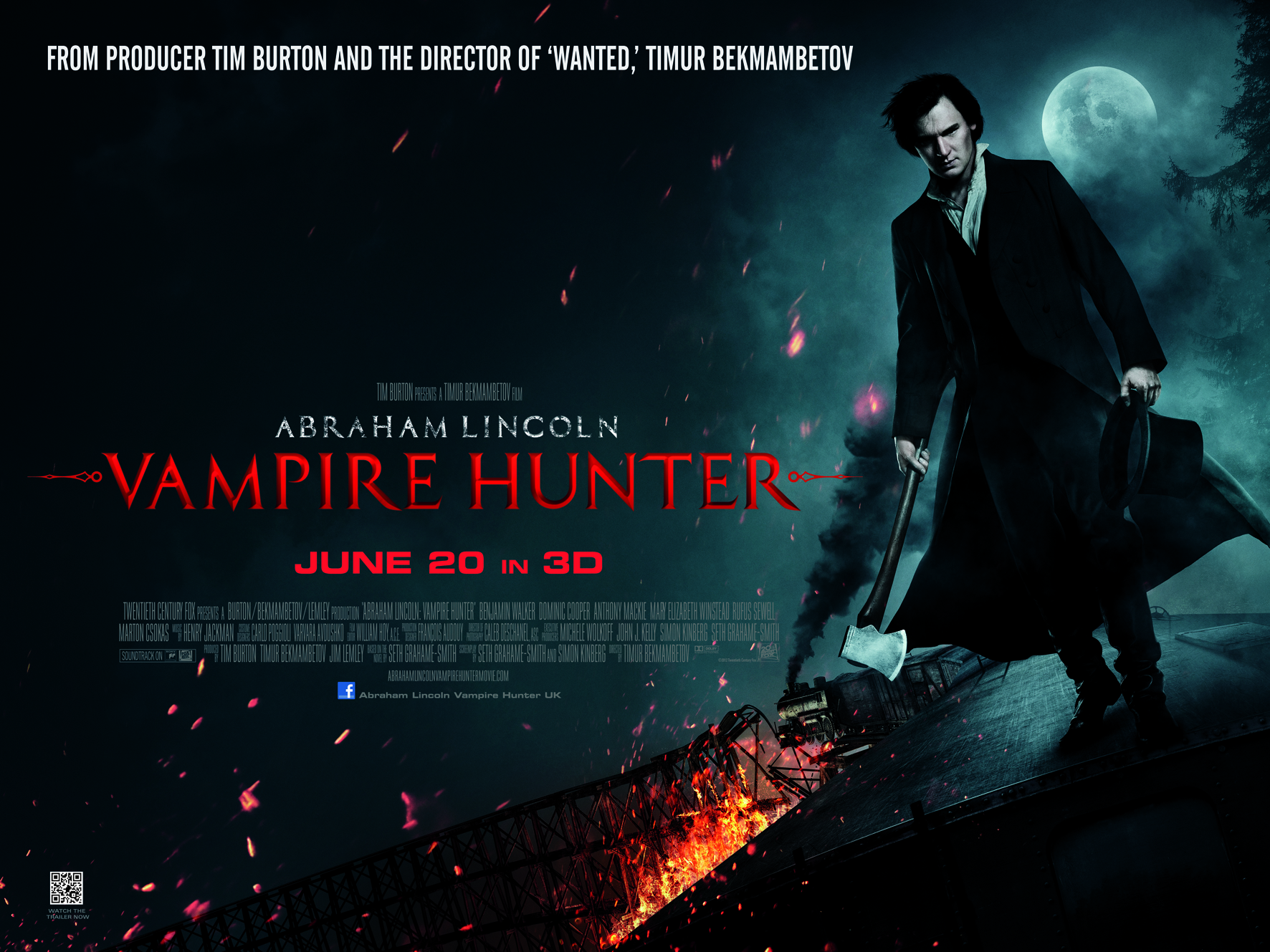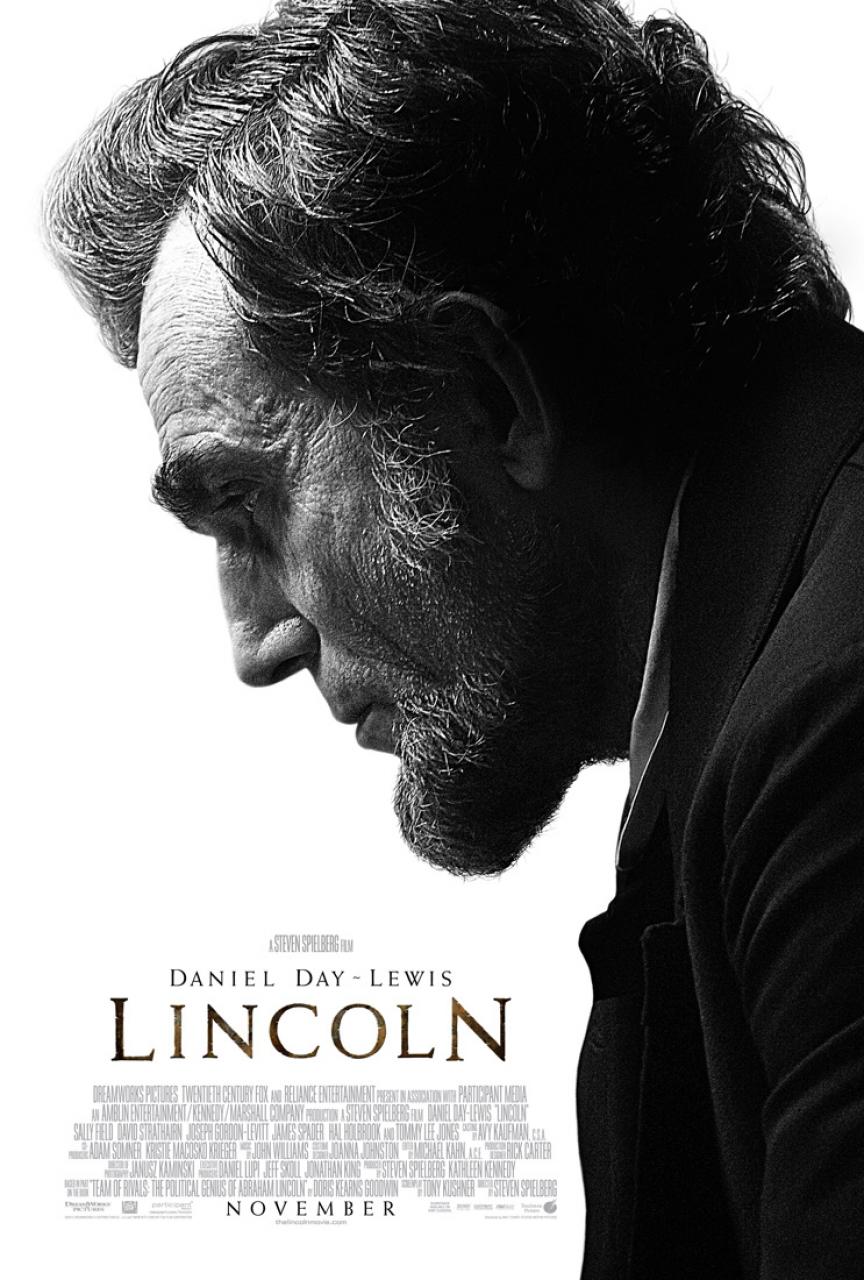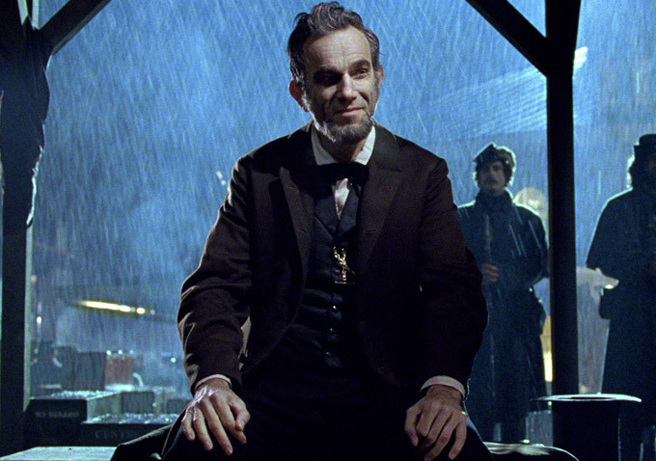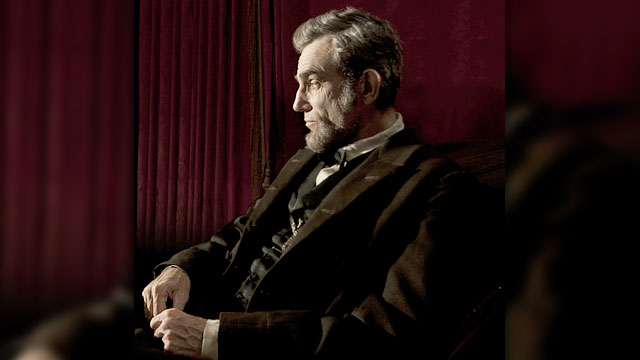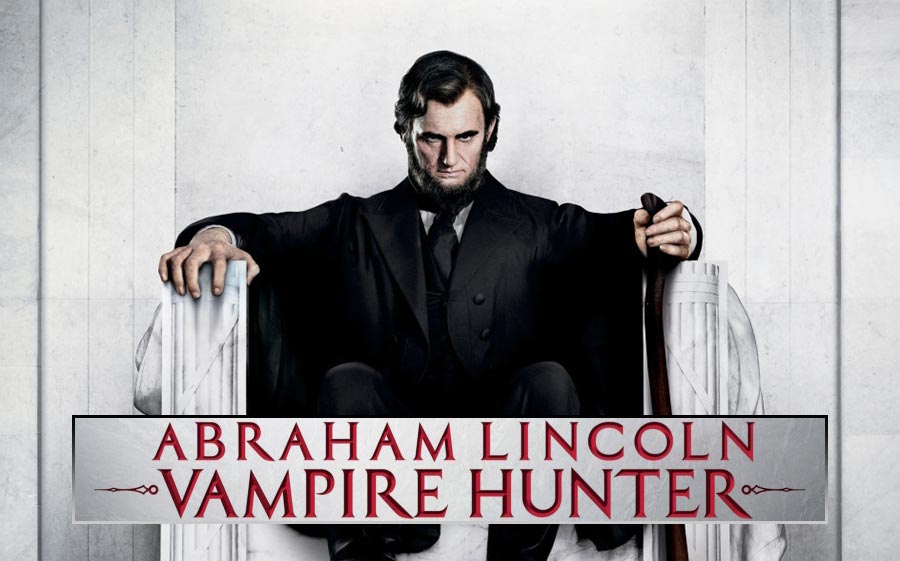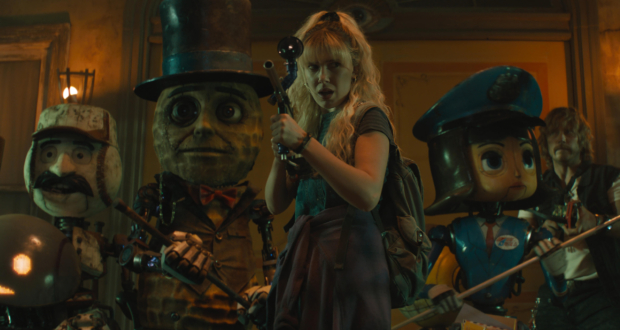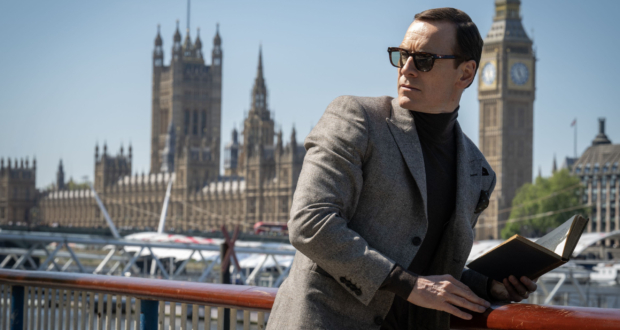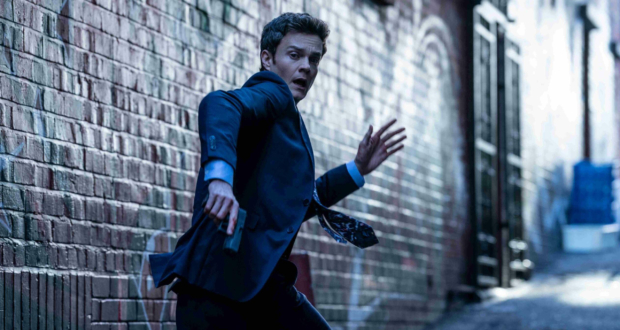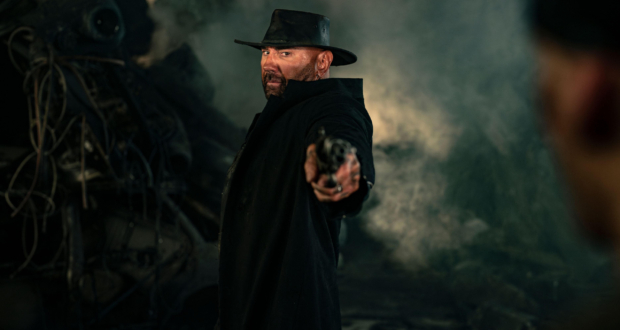ABRAHAM LINCOLN VAMPIRE HUNTER explores the secret life of our greatest president, and the untold history that shaped our nation. As a young boy, Abraham Lincoln witnesses the shocking death of his mother, leading him on a path to an ongoing war – and ultimately to the presidency – he chronicles in a hidden diary. The journal reveals the incredible story of a clandestine warrior who never stopped fighting for the country he led and the people he loved.
Abraham Lincoln: Vampire Hunter is based on the fictional work by Seth Grahame-Smith. It’s directed by Timur Bekmanbetov and co-produced by Tim Burton. It’s easy to immediately see where both Bekmanbetov and Burton have placed their own influences. The marketing for this film pushes Bekmanbetov’s stylistic approach to action so if you’ve followed his career perhaps you’re a fan of Night Watch (2004), Day Watch (2006) and the more well known Wanted (2008). An interesting fact is that this is not the first time that Bekmanbetov and Burton have worked together. The computer-animated post apocalyptic film, 9 (2009) was their initial debut together with Burton and Bekmanbetov as producers. Abraham Lincoln: Vampire Hunter switches their roles and because of this, this movie is what we expect in respect to being more about the action and less about the dark atmospheric theme. While there are nuances of Burton in the film Abraham Lincoln: Vampire Hunter is more serious and rigid than Burton’s particular style.
And it’s because of this, I think this movie falls flat and/or dead.
The premise of the film is: Abraham Lincoln was secretly a vampire hunter and the American Civil War was actually about vampires versus humans, more specifically the North were the humans led by Abraham Lincoln (Benjamin Walker) and the South was secretly being influenced by vampires, led by Adam (Rufus Sewell). They adapt history by going with the idea that slavery was partially a deception and that slavery in the South was due to the vampires gathering them as cattle for food but at the same time wanted to gather them to keep the illusion that vampires are myth. Their ultimate goal being that they were waiting for the ascension of vampires and having a nation of their very own and, presumably, take over the world. Because what other goal is there? Adam says at one point that he’s spent 5,000 years wandering the Earth, watching civilizations rise and fall and having been a part of them all. Once this revelation is made one immediately begins to wonder “why… have you not accomplished your goal already? That’s five millennia.”
But I digress, because the premise is as silly as the film sounds. The trailers illustrated as such and if you’re a fan of the vampire genre then you probably found yourself in the theater this weekend. If you’re a fan of action then maybe that was enough. Admittedly, the film has been a common excuse to go into a theatre and immediately shut off your brain. Abraham Lincoln: Vampire Hunter immediately asks you not take the premise too seriously, which is fine, but in the same stead asks you not to laugh at the premise either. The film becomes an appropriation of history itself with the insertion of Abraham Lincoln being a vampire hunter which is justified early in the film as his mother is killed by a vampire which sets him on his course.
From this point in his life Lincoln seeks revenge and some years later eventually runs into Henry Sturges (Dominic Cooper). Sturges becomes his mentor in the methods of vampire hunting. From there the film progresses, suddenly juggling the aspect of Lincoln leading a double life with him following law and subsequent politics in the day and killing vampires at night. Due to the film’s pacing and it’s intent trying to condense Grahame-Smith’s novel, things move at montage speed. Time moves indiscriminately as history itself becomes the story along the way trying to interject the war of vampires versus humans. Interestingly there is a point in the film where the movie no longer becomes about vampire hunting and more about Lincoln’s presidency and the politics involved. You’ll see as the scenes with vampires lurking in the background ominously becomes just that and the action the trailer’s showcased flautualantly become non-existent. Sadly, as the audience waits for it, the payoff at the end becomes predictable. It’s a story arc that is told in fractions and clumsily stitched together.
There are indeed some enjoyable panning shots during the action but the grainy 35 mm presentation style combined with a half-hearted 3D conversion leads to an overall lacklustre visual. There are scenes that will blend together interestingly but the positive moments are lost because the cinematography isn’t as sharp as the trailers would have you believe. When the action slows down so does the camera and the unfavorable set design becomes apparent. The 3D presentation itself, while in some areas showcase depths of field, are never fully adopted by Bekmanbetov. A good test with 3D is to simply take off your glasses. If the movie is incredibly blurry, the depth of field is rich. Abraham Lincoln: Vampire Hunter’s’ grainy presentation further masks the depth of field that was initially intended and hurts the post conversion as well. It’s interesting but more so at the same time becomes extremely forgettable.
There are relative positive notes as casting felt more stylistic in reference to individuals who fit the parts visually. I enjoyed Dominic Cooper’s illusive characterization as the vampire mentor and admittedly have a soft spot for Rufus Sewell. I think it’s more in respect due to the subtle dark theme of the film as I kept imagining Dark City (1998) in the back of my mind. Benjamin Walker’s depiction of Abraham Lincoln is well done, but that is dependant on which side of the fence you’re on. Being one who wanted more vampire hunting versus the political ambitions the balance is never reached to the point where it makes enough sense to continue watching. Eventually near the end of the film the film simply ends and you know Lincoln’s’s role as it coincides with the re-imagined American history. Mary Elizabeth Winstead provides a somewhat familiar face and early on her character is enticing but eventually it feels shoehorned and in this same way Abraham Lincoln: Vampire Hunter follows the same approach. A tease of a tease and never fully committing to the creative nature that Grahame-Smith’s novel does. The novel comparatively doesn’t hold back in re-writing history ridiculously and it crosses a line that the film does not.
If Abraham Lincoln was secretly a vampire hunter why not just take it where it shouldn’t go? The premise itself already does. I can’t recommend watching Abraham Lincoln: Vampire Hunter in the slightest. Honestly a documentary about the American Civil War would’ve been far more worth the time and properly educational. If you want vampire hunting consider watching Van Helsing (2004) because it is in fact better to watch.
I give Abraham Lincoln: Vampire Hunter 3 out of 10.
